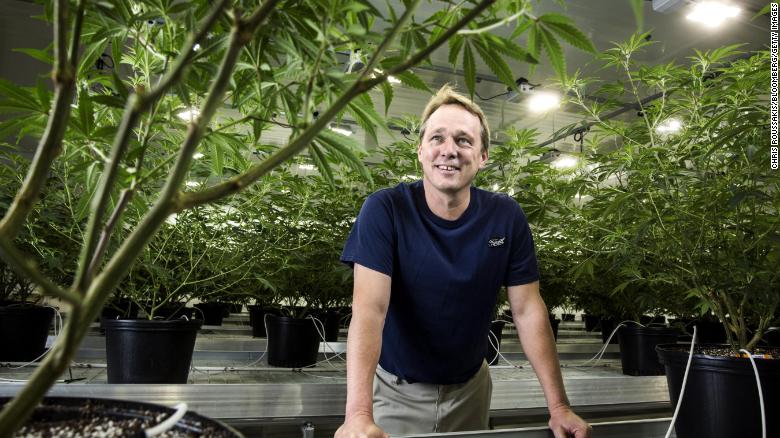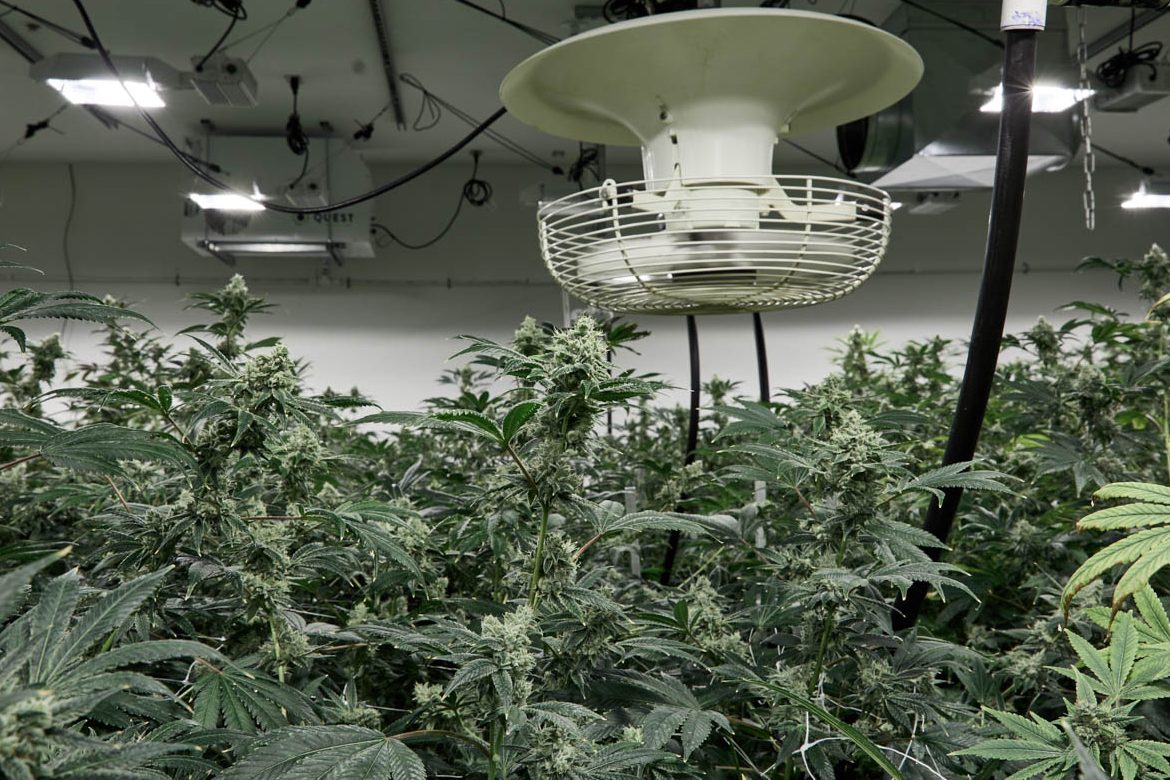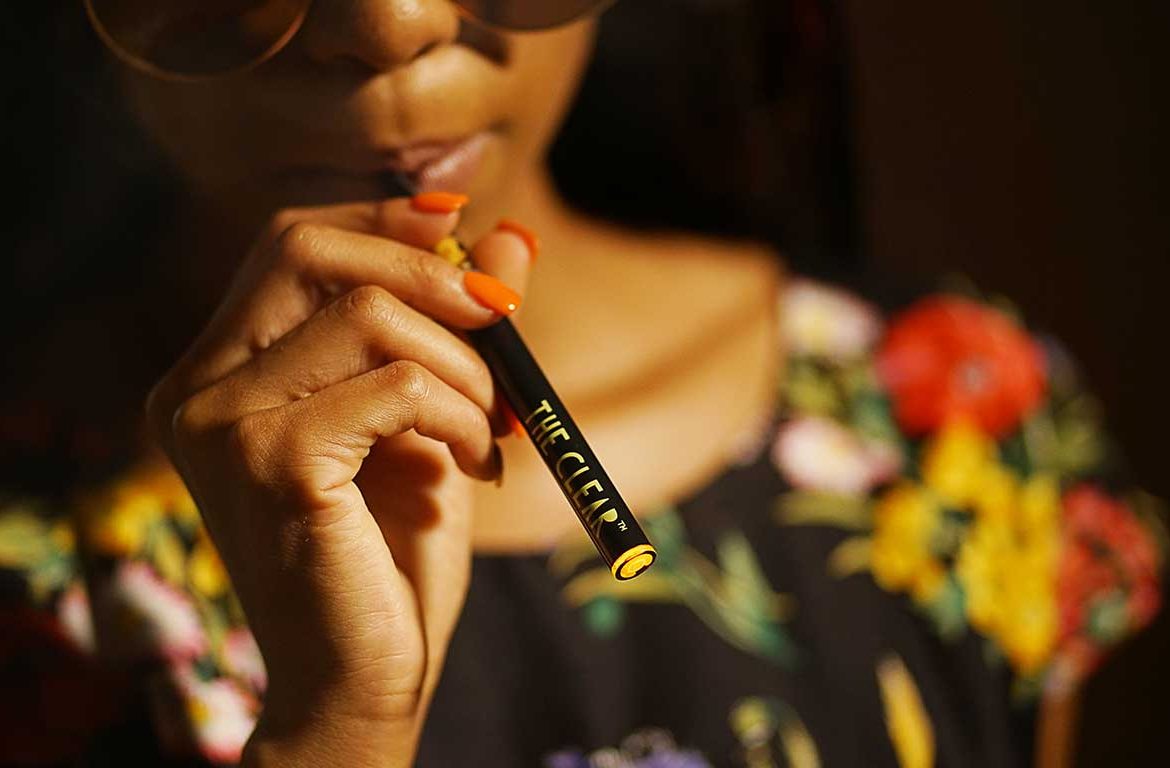San Francisco (CNN Business) – Bruce Linton, founder and co-CEO of Canopy Growth, seemed unfazed last month when his company’s stock sunk after a poor financial showing. Now he’s out of a job.
Linton heralded Canopy’s potential, telling CNN Business last week that his firm — the world’s largest cannabis company — was well-positioned to dominate its emerging industry for years to come. The Canadian cultivator, manufacturer and seller of cannabis products, however, soon would become a company in flux.
On Wednesday, Linton told CNN he was fired. The executive shake-up at Canopy highlights not only the challenges cannabis firms face in trying to meet sky-high expectations, but also the maturation of a long-illicit substance into a legitimate industry.
Canopy (CGC) was ambitiously deploying a multi-billion dollar war chest from alcohol giant Constellation Brands, which invested C$5 billion ($3.78 billion) in the company last year and owns 38% of Canopy stock.
It used the money to pluck up competitors; establish new operations overseas; secure a blockbuster agreement to eventually acquire American cannabis firm Acreage Holdings; invest in medicinal research; and formulate a slew of cannabis beverages, chocolates and vaporizers.
The company was playing the long game: It takes time for Cannabis markets to scale, for products to be developed, for research to be conducted, and for nations’ laws to change.
However, while looking far ahead, Canopy failed to deliver in the near-term and meet expectations set by its investors, especially its multi-billion dollar benefactor.
“[Linton] is a casualty of the growth in the industry,” said Richard M. Batenburg III, who heads investor relations for Cliintel Capital Management, a Denver-based institutional investment firm focused in cannabis. “You need a multi-billion dollar CEO to manage that process.”
Linton told CNN on Wednesday he had fallen out of favor with the company’s board, which now includes four directors installed by Constellation. Canopy co-CEO Mark Zekulin, who is serving as interim CEO, will step down when the company secures a new chief executive officer, a Canopy spokeswoman told CNN Business.
Canopy lost C$670 million and reported revenue of C$226.3 million for its fiscal year. The losses — attributed in part to lackluster sales in Canopy’s home country of Canada as well as high stock option expenses — were far wider than analysts had expected.
“This is a longer-term industry,” said Bethany Gomez, managing director of Brightfield Group, a Chicago-based firm that researches and analyzes the cannabis industry. “I think there are some revelations that are happening about the true viability and scalability of the Canadian market in general.”
There was much ado from investors when, in October 2018, Canada became the second nation in the world to legalize cannabis for adult recreational use. Valuations skyrockected for Canadian licensed operators like Canopy that had the public capital to quickly build market share in a potentially booming industry. However, during the past nine months, sales in the country did not match the hype.
Canada recorded C$356 million in cannabis sales from October 2018 through April 2019, according to data from Statistics Canada, the nation’s statistical agency. Those figures are trending well below analyst and market research reports, some that included projections that Canada could have billions in recreational sales right out of the gate.
Canada’s roll-out was intentionally restrained. The government wanted to take a cautious and thoughtful approach to the process, Gomez said, noting how the products were limited mostly to smokable cannabis, seeds, plants and oils.
As such, Canada’s recreational cannabis market does not resemble the adult-use states on the other side of its southern border. Recreational cannabis stores in places like Colorado and California offer cannabis in different forms well beyond the customary “flower,” or bud.
That will change later this year when Canada allows for more consumables — beverages, edibles and vaporized products — to be sold commercially where they are allowed. Canopy has invested heavily for that day, funneling dollars and hours into creating cannabis-infused drinks and chocolates and acquiring companies with deep intellectual property and research portfolios.
Linton told CNN Business last week that he believed Canopy’s products, including brands such as Tweed, could become the industry standard and sold at the world’s largest retailers. Believing in the potential of Canada’s export market and the emergence of medical cannabis industries overseas, Canopy expanded far and wide, establishing operations in more than a dozen countries.
Canopy has been more aggressive than its peers in acquiring other firms. It’s also been more in the public eye thanks to Linton, an eccentric personality who’s hyped about Canopy’s potential, Gomez said.
Linton’s departure might not necessarily signal that Canopy Growth will shift its approach, said Kris Inton, a Morningstar analyst who covers Canopy Growth and other publicly traded cannabis companies.
“In my view, it’s probably not going to change their strategic direction,” he said. “It’s not going to change any of their opportunities.”
Canopy Growth’s management overhaul could indicate the evolution of a more disciplined financial understanding of cannabis companies, especially in the publicly traded sphere, said William “Beau” Wrigley, Jr., who heads Atlanta-based cannabis firm Surterra Wellness.
Wrigley expects to see traditional players along the lines of Constellation Brands continue to acquire and invest in cannabis firms, but with a more critical eye on the management background and financial and operational history.
“This does not in any way impact the potential of [cannabis],” Wrigley said. “This business, in terms of valuations, needs some recalibration.”






